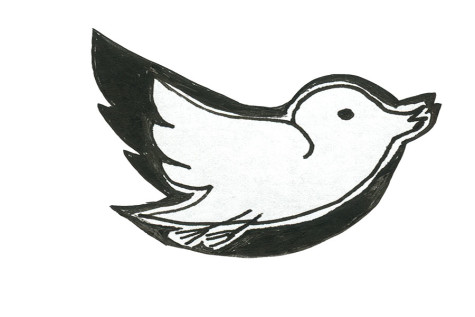How Twitter has changed Urban’s social culture
If you want to see real Urban drama, log onto Twitter. Over the past few years, students have created a virtual community that allows them to challenge cultural norms and enjoy popular media. While this can be seen in the hallways at school, there is something special about the way Urban students interact over Twitter. Urban students have created a culture on Twitter centered on the sharing of ideas that would not normally be spread around school. But what happens when Twitter replaces valuable face-to-face discourse and blurs the lines of what is acceptable to share?
Urban is already known for having a unique social culture, different from other schools and communities. Twitter has created a space for students to share random thoughts they have throughout the day, and it has become a spot where students seem to be able to speak their minds freely, no matter the controversy.
As Dominic Bobila (‘17) puts it, “People are more accepting of what people say on Twitter rather than if they were to say something on Facebook or Instagram.”
Spencer Rosen (‘17) thinks that, “people use Twitter because it is an easy way to send a funny thought out to people … that’s the reason why I use it.” However, because of the casual manner people use on Twitter, Urban students sometimes write posts that offend others. Although most people I interviewed suggested that tweets should be taken in a positive or humorous way, it is not uncommon for someone to be offended by another’s tweet. Misinterpreting a tweet can influence actual face-to face-interactions, ultimately impacting Urban’s social culture in a negative way.
The appropriateness of some tweets has come into question, but Twitter is still taken with a grain of salt. Maia Bruno-BaSaing (‘16) says, “I don’t really think about censoring very much and I don’t think other people do too much either.”
Urban 9th/10th Grade Dean and frequent Twitter user, Clarke Weatherspoon, has a contrasting perspective: “This idea about not censoring tweets teaches kids to not censor what they say in general. I think not censoring is a mistake, because what kind of an influence do you think it would have on how they communicate with other people face-to-face?” he says. As a teacher, Weatherspoon admits, “I can’t really relate the general Urban twitter culture [to Urban’s social culture] because I don’t follow any students on Twitter.” However, he thinks that “the best thing to see [Twitter] as is a way to connect and learn.”
Twitter has had a substantial impact on Urban’s environment. Considering that Urban’s Twitter culture developed in a matter of a few years, it is very well possible that it will continue to adapt and change itself in the coming years as the hype around Twitter changes. Three years from now, it is likely new Urban students will change the Urban Twitter culture again, as the overall school culture changes as well.

